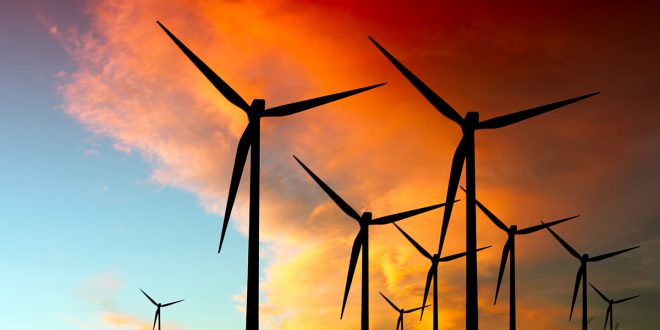As October, Energy Awareness Month, approaches, perhaps it’s a good time to interrogate your knowledge of energy sourcing. You use energy in its various forms every day, but what do you know about where it comes from and how your energy consumption affects the planet?
With discourse around climate change becoming increasingly mainstream, you’ve no doubt heard the terms “green energy” and “renewable energy.” Like many people, you may assume that they’re different terms for the same thing. However, that isn’t the case—green energy and renewable energy are two very different concepts.
What Is Conventional Energy?
First off, you want to understand “conventional energy.” This term refers to fossil fuels, which power most industries and homes worldwide. It includes natural gas, oil, and coal, energy sources that involve digging deep into the earth’s bowels. The compression of the remains of dead plants and animals under layers of soil over millions of years creates these types of fuels, hence the name “fossil” fuels.
The act of drilling or mining to extract conventional energy from the earth harms the environment, but that’s not where the damage stops—they harm the environment further by releasing greenhouse gases when combusted. Greenhouse gases include methane, nitrous oxide, and carbon dioxide, which trap heat in the atmosphere causing global temperatures to rise, interrupting normal weather patterns. These gases are also pollutants that can cause respiratory illnesses.
Fossil fuels aren’t the only form of conventional energy; today, there is also nuclear energy. Countries that generate this form of energy do so through the controlled nuclear fission of uranium or plutonium in reactors.
Governments around the globe have invested millions in researching nuclear fusion and how to safely and efficiently harness the full potential of nuclear energy. It promises a potentially inexhaustible energy source, but nuclear power, like other conventional energy forms, has undesirable effects on the planet.
While nuclear energy production doesn’t produce greenhouse gases, it does create the problem of radioactive waste. The waste from plutonium reactors can cause various forms of cancer.
Besides their adverse effects on the environment and its inhabitants’ health, conventional energy isn’t sustainable in the long run. Studies show that global oil and gas reserves are steadily depleting. The world’s oil reserves could run out in 53 years at the current consumption rate, meaning a working alternative will be required in the not-so-distant future.
What Is Renewable Energy?
By definition, renewable energy comes from nature cannot be depleted. It comes from “unlimited” sources, including sun and wind. Renewable energy can also include geothermal energy generated from the heat in the earth and biomass generated from the waste produced by plants and animals.
Hydroelectric power also falls in this category. These sources have a smaller impact on the environment than conventional energy. Nevertheless, hydroelectric dams, for instance, can have a considerable effect on the environment and wildlife.
Over the past 500 years, conventional energy has dominated the market, but nations worldwide are increasingly seeking ways to reduce their “dirty” energy consumption. Today, an eighth of the energy generated within the U.S. comes from renewable sources.
What Is Green Energy?
Green energy is a form of renewable energy that has a small carbon footprint. While all green energy is renewable energy, not all renewable energy is considered green.
Examples of green energy include wind, solar, biogas, some types of biomass, geothermal energy, and some low-impact sources of hydroelectric power. What sets green energy apart is the fact that it doesn’t produce any undesirable greenhouse gases.
Though ideal for the environment, green energy can be challenging to produce on a large scale because of its dependence on the weather and high-capacity installation. But once in place, these green energy plants could potentially power entire cities and still create a surplus. For example, one clean energy company in Texas aims to debunk the myth that solar energy is too expensive for the average consumer.
Joining the Green Revolution
When discussing clean energy alternatives, many people like to debate the responsibility of individual consumers versus corporations to make the switch to more responsible energy sources. However, creating a greener world will likely require both.
While you may think that you, as a regular consumer, don’t have the opportunity to power your home with green or renewable energy—think again. Today, more and more energy companies offer affordable solutions for homeowners. With a little research, you can likely find a clean energy provider near you.



